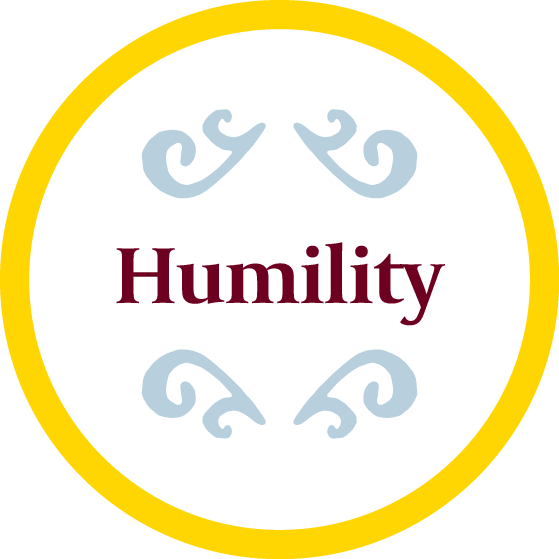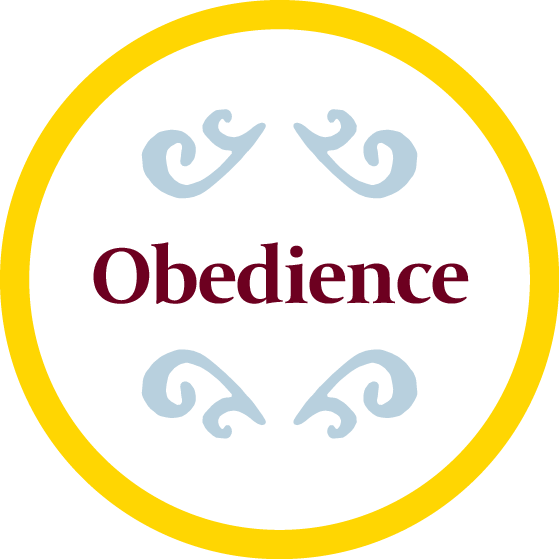What is an oblate?
Benedictine Oblates are ordinary people: men and women, married and single, lay and ordained; Catholic and non-Catholic Christians; retired, working in the home, and working in the community. Members of the Oblate community are from Schuyler, Omaha, Lincoln, and South Dakota — even as far away as New York and Louisiana. What they have in common is a deep desire to live as members of the Body of Christ in a special way — according to the principles Saint Benedict set out in his Rule.
“To be an oblate is to live with one foot in the world and one foot in the monastery.
”
Why become an Oblate?
Oblates seek God by striving to become holy in their chosen way of life
Oblates are Christian individuals associated with a monastic community
Oblates offer their lives to God through prayer and service
Oblates are faithful in their participation in the liturgical and sacramental life of the Church, or to the prayers and practices of their particular denominations.
What does a Benedictine Oblate do?
Benedictine Oblates live their lives according to the principles Jesus laid out in the Gospels which St. Benedict exemplified in his Rule.
They are obliged to:
Pray daily
Reflect on Scripture
Work with dignity
Engage in re-creative recreation
Attend monthly meetings as much as possible.
Pray for the monks of Christ the King Priory
Pray for the needs of other oblates, and for vocations to our monastery.
Pray for other intentions that might be presented to them.
Oblates practice:
FREQUENTLY ASKED QUESTIONS
1. Can both women and men be Oblates? Yes. The Oblates of Christ the King Priory are both women and men even as Christ the King Priory is a men’s community.
2. Can Christians who are not Roman Catholic be Oblates? Yes. By design, the Oblates program is ecumenical. Our Oblate community includes Christians in Eastern and Protestant denominations. We are united by faith in Christ and a desire to learn and practice Benedictine spirituality in our daily lives. Clergy are welcome.
3. How often do the Oblates meet? Do I have to attend every meeting? We meet every second Saturday of the month. In October, we have a Friday evening through Sunday Noon retreat with a guest speaker. We encourage you to attend as often as possible, and to make attendance at the annual retreat a priority.
4. What do you do at the meetings? We practice lectio divina, attend eucharist, share a meal and prayer requests, share news from the monastery and our Oblate community, and discuss a book that we are reading together.
5. Can I attend a meeting or two without making a commitment to the group? Yes. If you want to see what Oblate gatherings and Oblates are like, you are welcome at our gatherings.
6. Who can participate in the discussion at Oblate meetings and retreats? All are welcome to share comments or questions. We want our Oblate community to be a safe place for sharing the questions and insights from each person’s faith journey.
7. What’s the process for becoming an Oblate? Inquirers and Novices attend as many of the monthly meetings as they can, and novices have a Friday night through Sunday morning retreat on the weekend they are received as an Oblate. No one is expected to take the next step until feeling ready.
8. What does it cost to be an Oblate? Other than room and board during the annual retreat, and purchasing the book that is being studied, there is no cost. If you want lunch on a meeting day, you can purchase a meal at the retreat center or bring your own.
9. If I have a question about or idea for the Oblate community, who should I contact? Please visit with our director or any of the following Benedictine Oblates:
Fr. Anastasius Reiser, OSB—Oblate Director
info_bmh@benedictinemissionhouse.com
Teresa Kretz, Treasurer
tkretz@catholicexchange.com 402-615-2169
Betty Bohaty (Schuyler)
bbohaty@gmail.com 402-615-3012
Gloria LaCrosse (Omaha)
gjlacrosse@yahoo.com 402-740-2571
Jodi Gehr (Lincoln)
jodigehr@gmail.com 402-432-9479
10. If I have a conflict with a participant in our Oblate community, how do I handle it? See Matthew 18:15-18 and The Rule of Benedict (RB) 23:1-7 and 4:73.
To become an oblate, or for more information, email us here:







